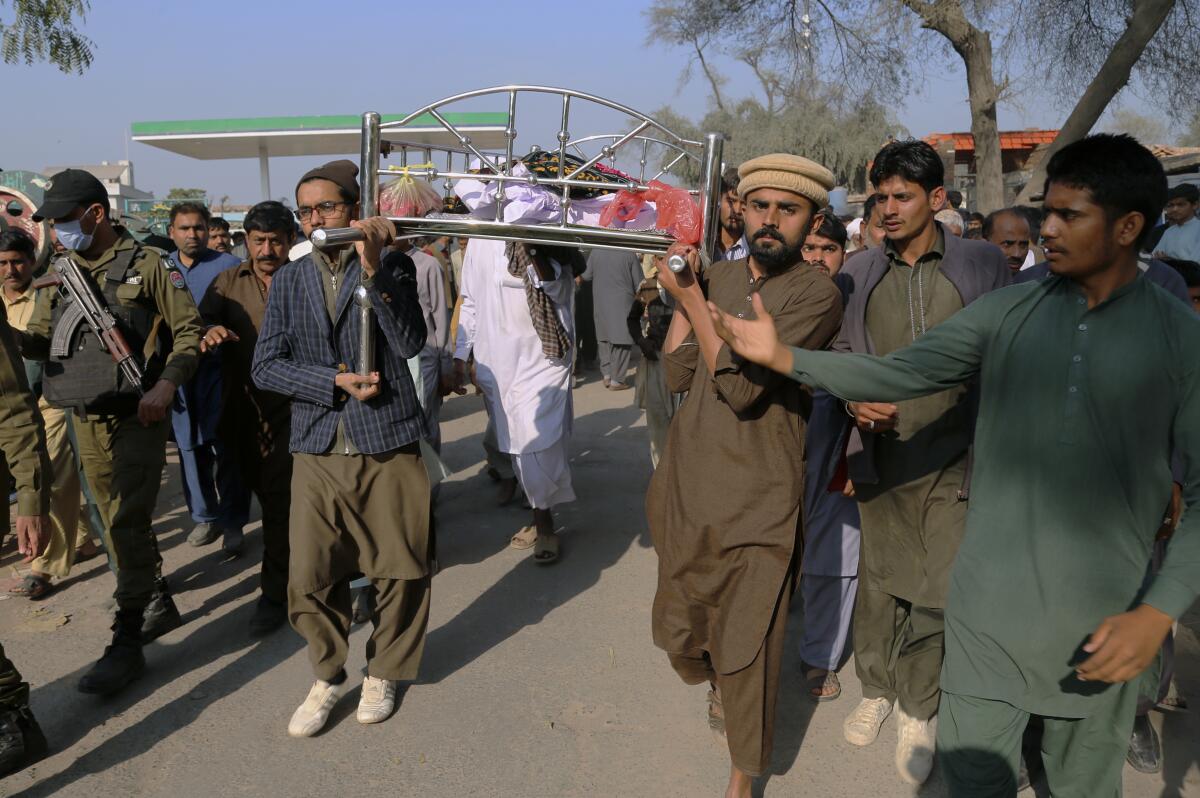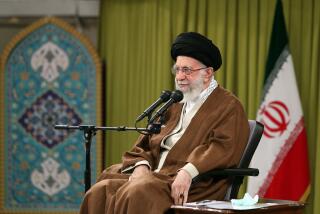Op-Ed: How blasphemy laws are used to serve political ends

- Share via
On Jan. 17, Pakistan’s National Assembly unanimously voted to expand the country’s laws on blasphemy, which already carried the death penalty for insulting the prophet Muhammad. Now anyone in Pakistan deemed to have insulted the prophet’s companions, which could include thousands of early Muslims, can face life imprisonment.
Across cultures and across centuries, I’ve found, blasphemy laws have emerged to serve the ruling authorities by silencing political dissent. From medieval times to the present, these laws have helped alliances between religious leaders and governments consolidate power.
Human rights activists are rightly concerned that Pakistan’s expanded laws could target minorities, particularly Shiite Muslims who are critical of many leading early Muslims.
About 1,500 Pakistanis have been charged with blasphemy over the last three decades. In a case covered by the international media, Junaid Hafeez, a university lecturer, was sentenced to death on the charge of insulting the prophet on Facebook in 2019. His sentence has been under appeal.
Although no executions for blasphemy have taken place, since 1990, more than 70 people have been murdered by mobs and vigilantes over allegations of insulting Islam in Pakistan.
Of the 71 countries that criminalize blasphemy, 32 are majority Muslim. The offense is punishable by death in Iran, Pakistan, Afghanistan, Brunei, Mauritania and Saudi Arabia. Among non-Muslim-majority countries, the harshest blasphemy laws are in Italy, where the maximum penalty is two years in prison.
In some European countries, blasphemy laws were still in place, if infrequently used, until recently. Denmark, Ireland and Malta all recently repealed their blasphemy laws. But they persist in many parts of the Muslim world.
In Pakistan, the military dictator Muhammad Zia ul-Haq, who ruled the country from 1978-88, updated blasphemy laws — written by British colonizers to avoid interreligious conflict — to defend specifically Sunni Islam and increased the maximum punishment to death.
From the 1920s until Zia’s rule, these laws had been applied only about a dozen times. Since then, they have become a powerful tool for crushing dissent. Some dozen Muslim countries, including Iran and Egypt, have undergone a similar process over the last four decades. Some countries have additional laws banning apostasy, meaning people may be punished for leaving the faith.
Many Islamic scholars and Muslim intellectuals reject the use of blasphemy and apostasy laws to silence religious dissent. They argue that the prophet Muhammad never executed anyone for apostasy, nor encouraged his followers to do so. Criminalizing sacrilege isn’t based on Islam’s main sacred text, the Quran, either. It contains more than 100 verses encouraging peace, freedom of conscience and religious tolerance.
Muslims’ stances on blasphemy are not just about religion, though. They are influenced by international affairs. Across the globe, Muslim minorities — including the Palestinians under Israeli occupation, Chechens of Russia, Muslim Kashmiris of India, Rohingya of Myanmar and Uyghurs of China — have experienced persecution.
Alongside persecution are some Western policies that discriminate against certain Muslims, such as laws prohibiting head scarves in schools. Such laws and policies can create the impression that Muslims are under siege and provide an excuse for the belief that punishing sacrilege is a necessary defense of the faith.
In reality, these laws ultimately contribute to anti-Muslim stereotypes about religious intolerance. Some of my Turkish relatives even discourage my work on this topic, fearing that to expose Muslim nations’ crackdowns on blasphemy is to fuel Islamophobia.
But I hope people within the Muslim world and beyond can come to understand that criminalizing blasphemy and apostasy is more political than it is religious. The Quran does not require punishing sacrilege: Authoritarian politics do.
Ahmet T. Kuru is a professor of political science at San Diego State University and the author of “Islam, Authoritarianism, and Underdevelopment: A Global and Historical Comparison.” This article was produced in partnership with The Conversation.
More to Read
A cure for the common opinion
Get thought-provoking perspectives with our weekly newsletter.
You may occasionally receive promotional content from the Los Angeles Times.










